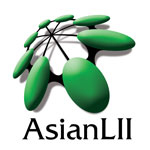
 Faculty
Faculty Alumni
Alumni
 Dean's Message
Dean's Message |
 About AUSL
About AUSL |
 Academic Programs
Academic Programs |
 AUSL Offices
AUSL Offices |
 Bar Review Program
Bar Review Program |
 Campus Map
Campus Map |
 Contact Us
Contact Us |
 Home
Home |
 |
AsianLII Philippine Launching Photo Gallery | |||
Asian LII Launching |

| |||
The Arellano Law Foundation, which has produced many of the brightest legal minds in this country, has added another feather in its cap when its Lawphil Project was chosen to represent the Philippines in the Asian Legal Information Institute (Asian LII), non-profit and free access web site for legal information from all 27 countries and territories in Asia. The Lawphil Project is one of the most complete and most accessed databank of Philippine laws and jurisprudence, and other legal materials. It is the legal web site project of the ALF, a non-stock, non-profit institution specializing in legal education. AsianLII was launched for free public access last December 8, 2006 in Sydney with launches in a number of Asian countries taking place in the first half of 2007, beginning with the Philippines. The Philippine launch of AsianLII (www.asianlii.org)is scheduled on Jan. 10 with no less than Supreme Court Chief Justice Reynato S. Puno as the guest of honor. Asian LII provides for searching and browsing databases of legislation, case-law, legal information, where available, from each country in the region. At launch, it will provide access nearly 100 databases drawn from almost all 27 Asian countries. Over 140,000 cases from at least 15 countries, and over 15,000 pieces of legislation from at least 18 countries will be searchable. All databases can be searched simultaneously, or searches can be limited to one country's databases or other combinations. Search results can be ordered by relevance, by date, or by database. Asian LII is being developed by the Australasian Legal Information Institiute (AustLII), a joint facility of the Law Faculties at the University of Technology, Sydney (UTS) and the University of New South Wales (UNSW), in cooperation with partner institutions in Asian countries and other legal information institutes (LIIs) belonging to the Free Access to Law Movement. One aim of the AsianLII project is to assist development of the local capacity of its partner organizations to develop and maintain independent local legal information to standards of world's best practice, and to integrate them into international free-access law networks such as AsianLII, CommonLII and WorldLII. But the benefits of free access to law are limitless. Aside from aiding research, it will also encourage international trade and investment, but more importantly, unification despite differences in laws and customs. Source - The Philippine Star, Hidden Agenda,January 7, 2007 |
||||
![]() Arellano University School of Law
Arellano University School of Law
Taft Avenue Corner Menlo St. Pasay City, Philippines
Tel. No.: (632) 8404-3089 to 93 Fax.No.: (632) 8521-4691
![]() Best viewed in 1024x768 Screen Resolution
Best viewed in 1024x768 Screen Resolution
Copyright 2007. Arellano Law Foundation. All RIghts Reserved
Website Powered by: IT Center Web Development Team

